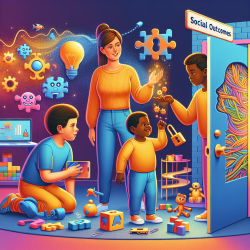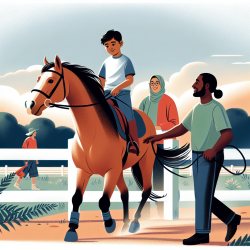Introduction
The experience of a child's hospitalization in a Pediatric Intensive Care Unit (PICU) is a significant event that impacts not only the child but the entire family. The research article titled "Family Members' Perceptions of Their Psychological Responses One Year Following Pediatric Intensive Care Unit (PICU) Hospitalization: Qualitative Findings From the Caring Intensively Study" provides valuable insights into the long-term psychological and behavioral responses of families post-PICU. This blog explores how practitioners can implement these findings to enhance their support for families navigating the aftermath of a PICU stay.
Key Findings from the Study
The study highlights four major themes that families experience as they strive to return to normalcy after a PICU hospitalization:
- Processing PICU Reminders and Memories: Families often find themselves revisiting memories of the PICU stay, which can evoke strong emotional responses.
- Changing Perceptions of Health and Illness: Parents and siblings often perceive the child survivor as more vulnerable, leading to heightened vigilance.
- We Are Not the Same: The experience can alter family dynamics and individual family members' sense of self.
- Altered Relationships: Relationships within the family, as well as social interactions, can be significantly impacted.
Implications for Practitioners
Understanding these themes can help practitioners provide more effective support to families post-PICU. Here are some strategies that can be implemented:
- Enhanced Follow-up Care: Regular follow-up appointments that focus on psychological recovery can help families process their experiences and adjust to changes in family dynamics.
- Family-Centered Approach: Recognize the interdependency of family members' experiences and provide support that addresses the family as a unit rather than focusing solely on the child survivor.
- Support for Siblings: Acknowledge the impact of the PICU experience on siblings and offer resources to help them cope with changes in family dynamics and their own emotional responses.
- Education and Resources: Provide families with information about common psychological responses post-PICU and resources for managing these challenges.
Encouraging Further Research
While the study provides valuable insights, there is still much to learn about the long-term impacts of PICU hospitalization on families. Practitioners are encouraged to engage in further research to explore these dynamics in greater depth and develop more targeted interventions. Understanding the nuances of each family's experience can lead to more personalized and effective care strategies.
To read the original research paper, please follow this link: Family Members' Perceptions of Their Psychological Responses One Year Following Pediatric Intensive Care Unit (PICU) Hospitalization: Qualitative Findings From the Caring Intensively Study.










